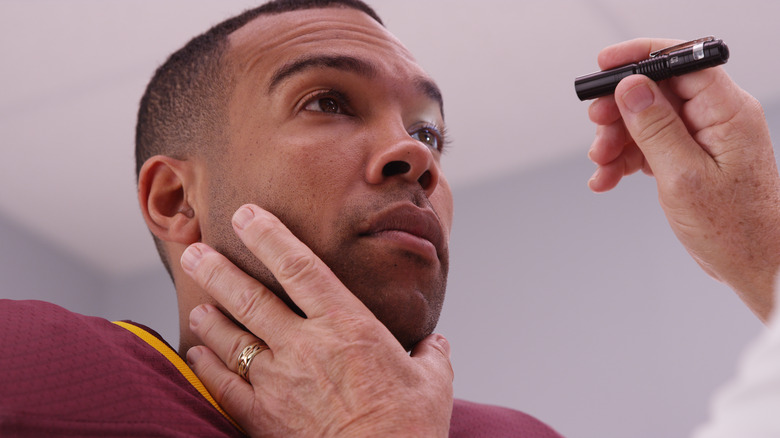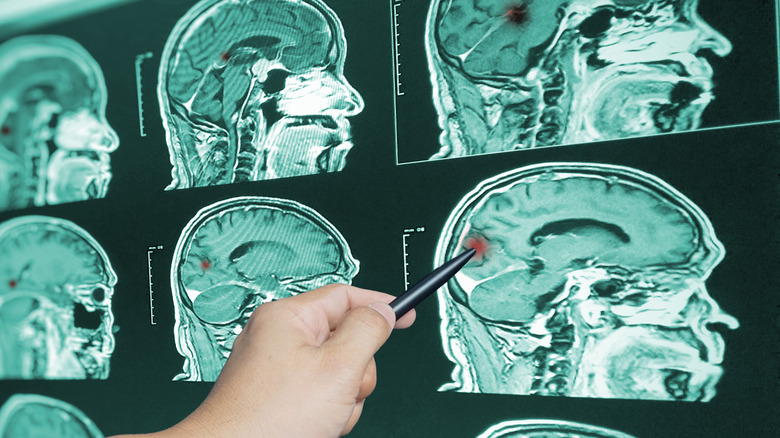What Happens If A Concussion Goes Untreated?
A concussion is a type of traumatic brain injury caused by a blow or impact to the head. While a concussion sometimes results in a loss of consciousness, it often instead results in symptoms like headache, dizziness, nausea, confusion, or light sensitivity, according to the Hospital for Special Surgery (HSS) in New York City.
One in four people will experience a concussion in their lifetime, according to National Public Radio, and a third will go on to experience long-term side effects. Treatments for concussion and concussion-related injuries vary depending on the individual and what symptoms they are experiencing but usually include a period of rest followed by evaluations to determine whether the person is ready to return to daily activities.
Most people recover from a concussion in a matter of weeks, but some go on to develop post-concussive syndrome, which may last for months or longer, according to the Centers for Disease Control and Prevention. If a concussion is left untreated, symptoms often persist for much longer periods of time and may lead to a higher risk of repeat concussions in the future (via HSS). Thus, the best way to avoid long-term symptoms or complications is to seek medical attention and get treatment right away.
Causes and symptoms
Falling, car and bicycle crashes and collisions, contact sports injuries, and other incidents that result in impact to the head or violent shaking of it can cause a concussion. When the brain twists around in the skull, chemical and/or physical changes can take place, leading to the symptoms commonly associated with concussions, according to the CDC. Considered a type of "mild" brain injury in most cases, concussions can still result in serious effects that diminish all aspects of life, including work and relationships as well as daily activities like driving a car.
Many people report cognitive problems after the concussive event, including trouble remembering things and slower response times to questions. Headaches and trouble sleeping are also common symptoms of concussions, while feeling "foggy" or "sluggish" is also widely reported, according to the University of Pittsburg School of Medicine. Vision problems occur in 90% of people who suffer a brain injury, including double vision, loss of focus, light sensitivity, and eye strain (via American Optometric Association).
Assessing a concussion
Signs and symptoms of a concussion usually show up right after the injury. Most doctors will begin treatment for a concussion with an assessment that determines the seriousness of the condition, identifies the exact symptoms, and then records them so they can be tracked in the future. They will also check for danger signs like the enlargement of one pupil over another, slurred speech, or excessive drowsiness that may indicate more serious brain damage, according to the CDC. Severe brain damage may indicate the need for hospitalization and carries a risk for long-term problems.
As time passes and symptoms improve, more and more activity can be reintroduced back into the life of the patient. However, jumping right back into normal active life without waiting for symptoms to resolve increases the risk of prolonging the duration of the symptoms (post-concussive syndrome). Doctors also warn that untreated concussions raise the risk of a new concussive event, which can be more dangerous and debilitating.



